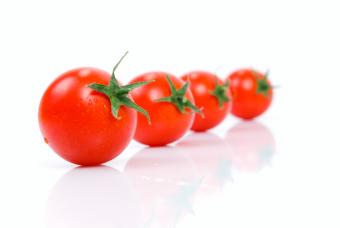Nutritional Values of Vegetables

Anyone following a vegetarian, vegan or raw food diet needs to know nutritional values of vegetables. Eating a balanced diet is essential for good health. One trick is to 'eat according to the rainbow', striving to eat different colored vegetables. This helps you take in all the vitamins, minerals and antioxidants you need to support good health.
Kale and Leafy Green Vegetables

Kale, spinach and chard belong to the family nutritionists commonly call leafy green vegetables. Kale is abundant in vitamins A, C and K. Kale contains 41 calories per cup, 1 gram of dietary fiber, and vitamins A, C, and K. It also contains iron and potassium.
Beautiful Beets

Beets have been prized throughout history, and up until Roman times, only the leaves were eaten! Now we enjoy the rich ruby colored roots too. Beet contains about 75 calories per one cup, cooked. They have 3 grams of protein per cup. Yes, protein. Did you know that vegetables contain protein? You can get abundant protein on a vegetarian diet. Beets also contain a good amount of potassium and dietary fiber.
Tomatoes for Antioxidants

Tomatoes are rich in lutein, an antioxidant for vision health. They're also good sources of vitamins and minerals. One medium sized red tomato contains 26 calories, 1 gram of protein, just 11 mg of sodium and 273 mg of potassium. They also contain vitamin A and vitamin C.
Carrots for Vitamin A

Bugs bunny knew a thing or two when he munched carrots all day. Carrots are low in calories, with just 31 calories per medium sized carrot, yet they contain an abundance of vitamin A - more than 2,000 units of vitamin A per medium carrot. They also contain 233 mg of potassium, 2 grams of dietary fiber, and many trace minerals.
Broccoli Goodness

Although it's an ancient vegetable in the Mediterranean, broccoli was almost unknown in America until Italian immigrants brought it to the states in the 1920's. Broccoli contains abundant nutrients, especially vitamins A and C. One cup of steamed broccoli has only 44 calories and 5 grams of protein, as well as nearly 2 mg of iron, over 500 mg of potassium, and 4 grams of dietary fiber. It's easier to digest than many other vegetables in the cabbage family and is extremely healthful.
Sprout for Living Vegetables

A study of the nutritional values of vegetables would be incomplete without including sprouts. Each type of sprout, from alfalfa sprouts to sunflower sprouts, contains different nutrients. But all sprouts are low calorie and packed with enzymes, chemicals that aid metabolic processes. They're healthy, easy to grow, and packed with many vitamins, minerals and fiber.
Sign up for our newsletter featuring all the latest stories and products we love.
Lettuce for Health

If you think lettuce is boring, you're probably thinking of the limp iceberg lettuce from your childhood. Lettuce comes in dozens of varieties with colors ranging from ruby red tinges to rich, dark green. The flavors differ too. Properly called salad greens, the actual vitamins in each cup of greens or lettuce will vary, but no matter what the variety, each cup contains less than 10 calories, 1 gram of protein, 1 gram of dietary fiber, and varying amounts of vitamins A, C, and minerals such as calcium and phosphorous.
Enjoy Fresh Vegetables

It would be impossible to cover all the vegetables available in the supermarket. There's rich purple eggplant, bok choi, spinach, parsnips, green beans, peas...and the list goes on and on! Rather than calculating exactly what you're eating, simply enjoy raw or cooked vegetables for health. All nutrition information included comes from the book The Nutrition Bible as well as the FDA.







